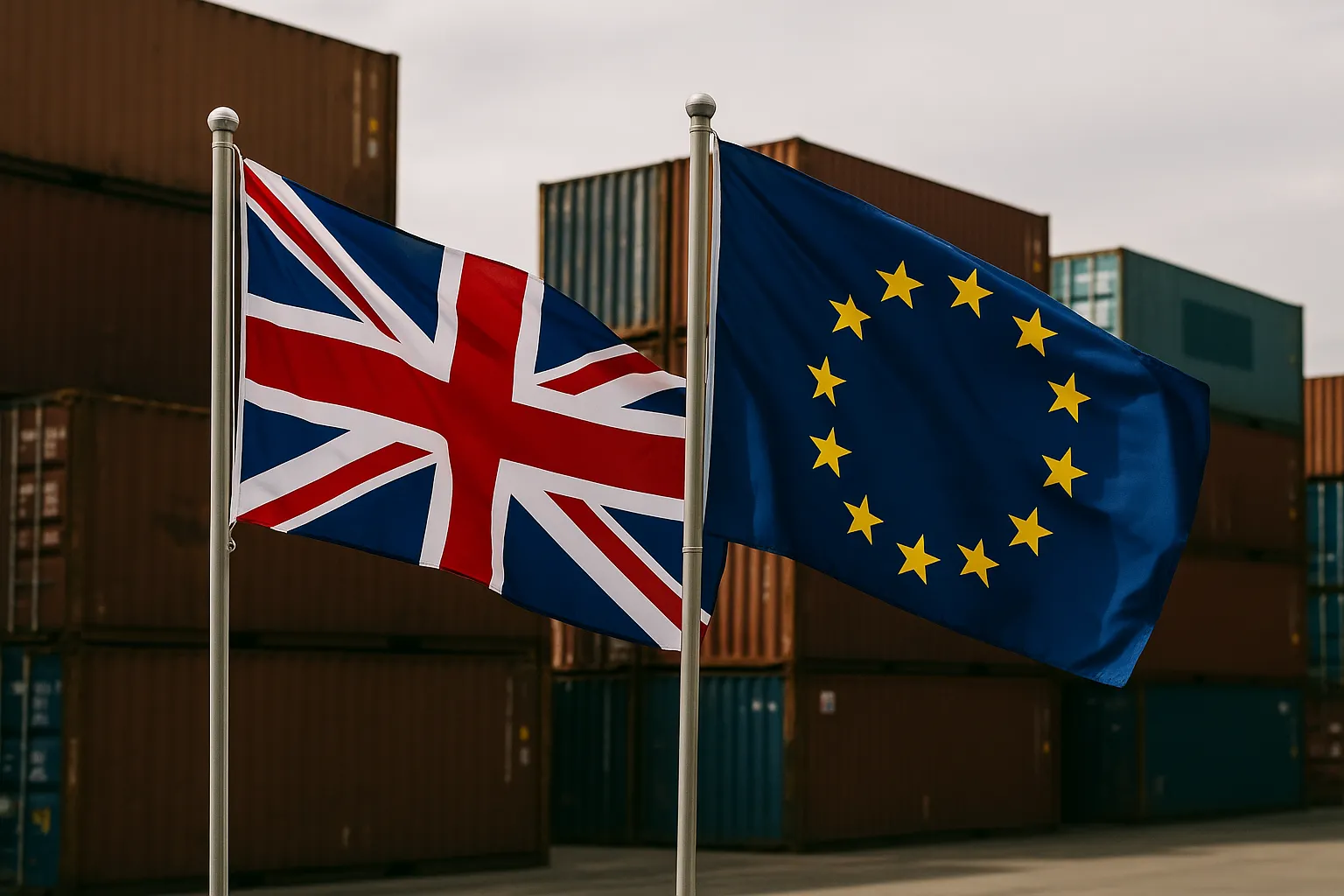The Britain trade war has become a textbook case of how global economic battles rarely crown a true winner. Politicians frame tariff wars as national triumphs, yet the reality is far messier. Britain rushed to strike a deal with the European Union after Trump’s tariff shockwaves, but even now, no clear victor emerges. Instead, the scars remain visible across both economies — and the narrative of “winning” looks hollow.
Context: the official story
The mainstream narrative insists Britain acted swiftly and smartly. When Trump’s tariff barrage stunned allies and rivals alike, London positioned itself as pragmatic, securing a new trade framework with Brussels. Officials painted the deal as proof of Britain’s flexibility after Brexit. Meanwhile, the EU claimed its industries had been shielded through strategic concessions. Numbers floated in press conferences painted partial victories: stabilized exports here, preserved market access there.
Oppositional Argument: the hollow claim of victory
But the Britain trade war is no victory — it is damage control disguised as strategy. Tariffs fractured long-established supply chains, raising costs for businesses on both sides. Inflationary pressures soared. British exporters, especially in automotive and agriculture, faced EU red tape that offset any negotiated relief. The EU, while maintaining market integrity, watched energy and manufacturing sectors bleed competitiveness. Declaring victory here is political theatre, not economic truth.
Analytical Breakdown: winners that never materialized
Trade wars promise nationalist pride but often deliver systemic pain. Britain’s economy is still reeling from slowed growth, and EU firms remain entangled in higher costs. Consumers ultimately pay the price through inflated goods. Historical parallels with U.S.-China trade battles show the pattern clearly: tariffs shift flows but do not resolve imbalances. Britain did not win; the EU did not win; Trump’s America gained only symbolic leverage. The global economy simply absorbed another shock.
Human Perspective: impact on ordinary people
Behind sterile trade tables are workers and households. British farmers saw contracts collapse as tariffs disrupted exports. European factories struggled to secure affordable British inputs, forcing layoffs. Small businesses on both sides faced tighter margins, higher import prices, and reduced competitiveness. For ordinary citizens, the “trade war” translated into higher grocery bills, weaker currencies, and diminished trust in political promises of prosperity.
Counterarguments
Proponents argue that Britain’s alignment with the EU preserved stability and avoided deeper shocks. Yet this is not “winning” — it is survival. Others claim tariffs will push self-sufficiency. In practice, such isolationism amplifies inefficiency and weakens consumer choice. Even economists who support strategic protectionism concede that Britain’s structural vulnerabilities remain unresolved.
Conclusion: the myth of triumph
The Britain trade war underscores a brutal lesson: global economic conflicts rarely deliver clean victories. They fracture alliances, distort markets, and punish citizens while leaders spin the story as triumph. Britain’s supposed agility was, in truth, a scramble for damage control. Until policymakers admit that tariffs are blunt weapons, not strategic victories, the cycle of false triumphs and real suffering will continue.
